- From Faith Current: “The Sacred Ordinary: St. Peter’s Church Hall” - May 1, 2023
- A brief (?) hiatus - April 22, 2023
- Something Happened - March 6, 2023
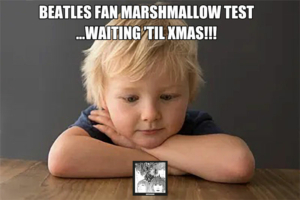 I lasted approximately thirty seven hours before I broke down and listened to the new mixes from Revolver Deluxe—thanks, bad influences, you know who you are. I was trying to hold out until Christmas morning. And I still plan to unbox the physical item on 9 am sharp December 25th. But in the meantime, here’s a thread to contain all the burbling. It’s worth burbling over.
I lasted approximately thirty seven hours before I broke down and listened to the new mixes from Revolver Deluxe—thanks, bad influences, you know who you are. I was trying to hold out until Christmas morning. And I still plan to unbox the physical item on 9 am sharp December 25th. But in the meantime, here’s a thread to contain all the burbling. It’s worth burbling over.
To prime the pump, go check out this article on Slate, which I liked—rather unexpectedly so because Slate’s motto should be “Where interesting topics go to die.” And this interview with Giles Martin on the “how” is very interesting as well. AsFaith Current said to me yesterday, the new instrument-isolating technology suggests that they’ll have to do Pepper and White and Abbey Road over, as well.
And I found this worktape simply transfixing. Think you will too.

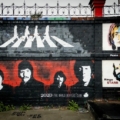


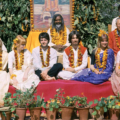

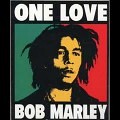

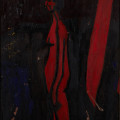
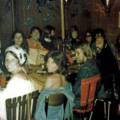
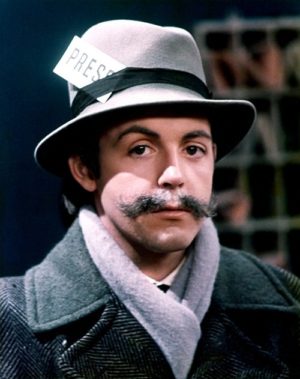
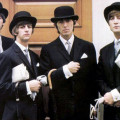
Love the outtakes, and as someone who’s currently trying to record a psychedelic rock album in his basement, I had a taste of what every other musician in Sixties must’ve thought when they heard new Beatles music: “oh, shit.” The two working tapes of Yellow Submarine are my favorites: first, so John was writing songs like that before Strawberry Fields and the White Album, but didn’t pursue the idea? Interesting. Why? I would love to know more about that idea (does Paul have any memory of it?). Two, a sliver of hearing Paul and John working together on a song is just delightful. I love hearing them have fun together.
The remix itself I need to listen to a couple more times. My first reaction was “…interesting,” but it didn’t knock me out the way the Sgt. Pepper remix did. It seems like some of the magic is how the instruments blend together, especially on the rock songs, and separating those instruments out is interesting as a student of the band, but less emotionally powerful. That mono mix is the tops, on disc 4. But hearing this music in any presentation other than that hard-wired into my brain is a delight.
Here are my highlights:
Yellow Submarine (Songwriting Work Tape / Part 2): I’ve seen more fuss about Part 1, but this part has definitely stayed with me longer. I don’t know if it’s the folkier guitar rhythm or the extra bits in the chorus, but this has been stuck in my head all day. It’s catchy and lovely in a way that the final version of Yellow Submarine, though I will always adore it, never has been for me. And hearing John and Paul work through it together is mesmerizing.
And Your Bird Can Sing (First Version / Take 2): I love the giggly version we got on Anthology (and also here), but I’m very glad we got this giggles-free version. The alternative arrangement is like a bridge between Rubber Soul and Revolver so it’s nice to be able to just listen to it. The guitar work is obviously great. Also, I somehow never realized that this version has a completely different, but equally melodic bassline. Very cool.
Got To Get You Into My Life (First Version / Take 5): Hearing them bicker about the organ was amusing.
Got To Get You Into My Life (Second Version / Unnumbered Mix): The lack of double-tracked vocal here made me realize just how good Paul sounds on this, especially on the opening line. I also like the new harmonies.
Rain (Take 5 / Actual Speed): What the fuck? What? This is my favorite track on this release and also the best thing I have ever heard. I guess what happened was that the drums and bass here were so mind-blowingly fantastic that they decided that they had to slow down the song so that people wouldn’t completely lose their minds upon listening. Seriously, it’s like they were trying to hide from us how incredible Paul and Ringo are on this.
As for the new mixes, I don’t have much to say outside of the fact that it’ll be nice to listen to these songs without having different parts trapped in opposite earbuds! It takes me back to that one time when I was at a restaurant and they were playing Eleanor Rigby, but every time we got to the verses, the vocal completely cut out. So I guess these new mixes will save some innocent Italian restaurants from accidentally playing orchestral chamber music.
“also the best thing I have ever heard”
amen.
The Yellow Submarine worktapes really make me wonder how faulty John and Paul’s memories were about who wrote what. This song has always been accepted by both of them as 100% Paul, but here we have John working separately on the verse, and then later the two of them coming together to flesh it out. Is this just a one-off, or are there a ton of other examples of a “John” or “Paul” song actually being collaborations?
I also wonder how often the joining together of two songs happened. We know the famous examples like “Day in the Life”, but did this actually happen a lot more?
I think you’re the one misremembering here. Neither John nor Paul ever claimed that Yellow Submarine was 100% Paul’s song, as far as I can tell. Here’s an assortment of statements they’ve made on its authorship:
Lennon/ McCartney Interview by Brian Matthew, 1967, regarding the Ivor Novello Awards: Paul says “I suppose I thought of the idea and then John and I wrote it.” Then, right after, John describes the writing of the song with complete accuracy:
JOHN: “Yeah. I seem to remember, like, the submarine… the chorus bit, you coming in with it.”
PAUL: “Yeah.”
JOHN: “And wasn’t the other bit something that I had already going, and we put them together?”
PAUL: “Well, yeah. Right. Yeah.”
JOHN: “And it made sense to make it into…”
PAUL: “Yeah, the bit… (sings melody to verse) ‘Dut-ta-da, da-dut-ta-da.'”
John Lennon Interview, Hit Parader, 1972: Regarding the authorship of Yellow Submarine, John says “Both of us. Paul wrote the catchy chorus. I helped with the blunderbuss bit.”
John Lennon Interview by David Sheff, 1980: John says “‘Yellow Submarine’ is Paul’s baby. Donovan helped with the lyrics. I helped with the lyrics, too. We virtually made the track come alive in the studio, but based on Paul’s inspiration. Paul’s idea, Paul’s title. So I count it as a ‘Paul’ song.”
Paul McCartney in Many Years From Now, 1997: Paul says “It’s pretty much my song as I recall, written for Ringo in that little twilight moment. I think John helped out; the lyrics get more and more
obscure as it goes on but the chorus, melody and verses are mine.”
So I think the difficulty comes from the fact that the “Yellow Submarine” idea clearly was Paul’s, so, over time, this is what stuck out about the track. Thus, 10+ years later, they forgot John’s contribution to the melody of the verses and just assumed he helped with the lyrics. But it’s never been a 100% Paul song and the most contemporary description we have of the writing of it gets it entirely correct. I think the claim from Giles Martin that this was believed to be 100% Paul’s song is just him explaining the general public’s attitude, not what John and Paul have actually said. I also think it’s a bit of a marketing technique to hype up the track.
In general, though, I think Lennon/McCartney songs are more collaborative than most people believe. I think there was this real scramble post-break-up to determine who wrote what as the Lennon/McCartney relationship descended into hostility. In Lennon Remembers, John is almost endearingly contradictory about how often they wrote together: “[Our songwriting partnership] ended . . . I don’t know, around 1962, or something, I don’t know. If you give me the albums I can tell you exactly who wrote what, and which line. We sometimes wrote together. All our best work – apart from the early days, like ‘I Want to Hold Your Hand’ we wrote together and things like that – we wrote apart always. The ‘One After 909,’ on the Let It Be LP, I wrote when I was 17 or 18. We always wrote separately, but we wrote together because we enjoyed it a lot sometimes, and also because they would say well, you’re going to make an album get together and knock off a few songs, just like a job.” John did a few interviews where he laid out who wrote what (Hit Parader 1972 and Playboy 1980). Then, in the decades following John’s death, Paul developed a bit of an insecurity about being properly credited for Beatles songs. To be fair, this often manifested in a support of collaboration rather than a denial: he’s more likely to take some credit for a song assumed to be John’s (In My Life, Norwegian Wood, Being for the Benefit of Mr. Kite, etc.) than to deny John’s involvement in one of his. Still, Paul’s attitude became very different from what it was in 1979 when he gave the following mindblowing statement about Lennon/McCartney songs in Rolling Stone: “There’s probably only about, say, twenty that are really our own. On the rest there’s quite a lot of collaboration.”
I know this is a very long response to a very short comment, but this topic tends to frustrate me. Why must we toss these songs into a centrifuge and break them down into pieces? What good does it do? At this point, I think this fracturing mode of analysis has been exhausted. It’s obvious that the Lennon/McCartney collaboration helped them both maintain a level of growth and consistency in their songs that neither could replicate afterward. It’s impossible to measure the constant influence they had on each other’s development as writers, so we ignore the synergy and break songs into lifeless fragments.
There’s a falling-apart Lennon/McCartney songbook that sits atop the piano in my house. A few months ago, I discovered that there was a forward written by the man who had compiled the book, Milton Okun, that I had somehow never read before. And, in 1973, Okun gets it exactly right: “In the final analysis of the music of Lennon and McCartney, it is tempting to theorize about who contributed what in each particular song. I think this theorizing is unimportant, because their symbiotic creativity was more important than its separate parts.”
The other day I stopped in to read Hey Dullblog and found myself going down the rabbit hole of links until I arrived at an ancient essay about Brian Wilson’s Smile — a record I wanted to like but have never warmed to. And I would have left a comment but thought what’s the point after so many years. Then I scrolled through the comments and lo and behold, I had left a comment, many, many years ago.
.
And I had exactly ZERO recollection of having done so.
.
I’ve had the same reaction to briefs I’ve written for court or posts on my own blog where I have no memory of having written them. But there they are, and I read them again as if reading somebody else’s writing. Pretty sure it’s not Alzheimer’s …
.
And I wasn’t a Beatle with ten million things going on, and people pulling at me every minute of every day.
.
Maybe the truth is, they themselves don’t remember who wrote what, and just assume “Well, that sounds like a Paul record, so Paul must have written it,” and have filled in the gaps with false memories based on faulty assumptions — “I helped with the verse” — when in fact it may have been a true collaboration.
.
Memory is a tricky thing and eyewitness testimony is notoriously unreliable. No reason to think a Beatle’s memory is any better than anybody else’s.
Not going to lie I’ve always hated yellow submarine. But the acoustic version John and Paul play made me appreciate the song in a way the actual final version never has. But I’m curious how the song went from lyrics of John in his feelings about his isolated childhood to a upbeat psychedelic kids song about submarines. Like did he play that for the other Beatles and them being all like “love the tune but let’s lose all the depressing childhood stuff and make the lyrics about boats!” lol.
Also the violin only version of Elenor Rigby not only made me appreciate the sheer awesomeness of those strings again and really made me think about the fact that George Martin really deserved a writing credit. Plus I loved hearing the super posh voices of the violinists working with very unposh Beatles lol.
The violin-only version of Rigby reminded me how fortunate Paul was to be collaborating with people of good taste. George Martin lets Paul choose between “vibrato” strings and “dry” strings. “Do you hear the difference?” Martin asks Paul. Paul replies that he really doesn’t. George and the violinists go with the dry version, an excellent choice in my opinion.
Imagine Paul’s frustration if he’d been saddled with a cheesy arranger and producer, someone who wanted to push him in a syrupy Las Vegas nightclub direction.
I think the Beatles were very fortunate in that through there career that had the perfect alchemy of meeting equally talented individuals who were adept at elevating the Beatles talents into something different then the stock standard. Similar to them having Richard Lester and Alun Owen direct/write Hard Days Night so it was something different unique and elevated then the usual pop star film.
And George had a different ear for music that the Beatles needed to be able to experiment and go off in different directions musically they way they ended up doing.
This has also reminded me of how much I enjoyed the fact that when John and Paul are getting into a fight over the organ and both struggling to translate what they are trying to say or interpret what the other is saying that George seems to know exactly what both are getting at lol.
As usual, Giles Martin does a very “meh” job with the multis, both sound and espacially-wise, thus, as usual, I’ll stick with the original mix warts and all.
I feel this release could have been much better had Apple Corps decided not to use one of the discs to re-release the mono mix, which is already available, and better sounding, in the mono box set. Highlights are Rain’s backing track at original speed, GTGYIML various takes (nice to have the Anthology take in full this time) and Taxman takes. Those already acquainted with “Mythology” and “Casualties” won’t find anything new on acoustic She Said and Submarine, they even sound pretty much the same, as if taken from the same boots and not from original tapes, which I suspect it’s the case once you A/B listen to them respectively. Also I would have liked more takes of Here TAE, the very same already available take 5 minus backing vocals is not very great, so to say.
To be honest, I don’t care a lot about who wrote what, which verse, which chords, and so forth. Listening to Yellow S home demo is just another example of the greatness of The Beatles being a team bigger and better than the sum of its parts. If there is something truly revelatory in this set, it is Ringo being very upfront, and how accomplished, creative and unique he was (is), throw Ringo away, bring any generic session drummer and the Beatles would have been seriously diminished, props to JPR for recognizing in 1962 the only drummer who would have been able to help the group becoming the strong unit they were and touch the stars.
Love all this, @Cristian J, thank you.
@Michael. You’re welcome, after the great job done with “Love” I have been sequentially disappointed, time after time, by Giles’ work. Being well aware lots love Giles’ remixes, I just have to say to each their own, George M. was the genius producer who deeply understood what was inside the collective and individual Beatles’ heads, Giles….. is his son 🙂
About Ringo, funny how there are still a few who consider him a good/not so good “time keeper”, Ringo was never much of a songwriter, but genius drummer, even in the early days. If you have the chance, give a listen to the march 5th 1963 complete session, check how take after take he goes “drawing” his drum work on Thank You Girl, and of course the edit piecem called take 13, for the ending.
@LeighAnn, perhaps it was John himself who changed the lyrics to Yellow Submatine? I recollect the credit claim for George Martin for Eleanor Rigby being brought up by someone else recently. The answer is still the same: no, he doesn’t. Where do you draw the line with this sort of thing? Because it is orchestrated? Because it is impressive? Many arrangements on Beatles songs are impressive. Martin in his writings made it quite clear about his role in Eleanor Rigby and there was no false modesty involved.
If the song had been written today George Martin would have be given a writing credit. There’s a reason that songs today have multiple writing credits and it’s because it’s probably more equitable between producers and musicians who have a significant role in the arrangement or lyrics of the songs. And the strings arrangement that George Martin composed for Eleanor Rigby makes up more then 50% of that song. It was also his idea as Paul was against it originally. I don’t think his contribution in general or with that song in particular should be underplayed or undervalued.
I agree that Martin deserves a huge amount of credit, LeighAnn, but I can’t agree that “the strings arrangement that George Martin composed for Eleanor Rigby makes up more then 50% of that song.” I can agree that the strings are vital to the song and that Martin’s taste in arranging those strings was impeccable. But the song itself — the rhythm and the words — came first. In the same way, Martin helped to realize “I Am the Walrus” and “Tomorrow Never Knows,” but Lennon’s conceptions of those songs came first.
Martin was a genuis arranger and the Beatles were incredibly fortunate to have him. But it’s also important to keep in mind that Martin never did anything else anywhere as good as what he did with the Beatles, at least in my opinion. He responded to their ideas and helped to realize them, but their ideas were primary.
Well said @Nancy, particularly your comment regarding George Martin’s stable of artists other than the Beatles. Despite his brilliant skills as a producer, George could not turn silk purses out of pigs ears with his other artists. The exceptional abilities the Beatles possessed was innate not made. Not only were the Beatles lucky to have worked with George Martin, but Martin was also lucky to have worked with the Beatles. They made his career. @LeighAnn, if you think George Martin’s score comprised 50% of Eleanor Rigby, then you’d have to apply the same criteria to ALL of the arrangements on the Beatles songs – the lead, bass and rhythm guitar chord progressions, the drums and piano, and any other instrument used. They are not lesser arrangements simply because they don’t have strings. Also, it’s common these days to bring up the whole armies of songwriters, musicians, and producers all being ‘credited’ for writing a song today. But songs today are very different to those written by the Beatles. Comparatively few of them comprise of a definite bridge or middle eight (too hard?) or a chorus as such. And while I enjoy a lot of good modern music, there appear to be no single outstanding songwriters of the likes of Lennon, McCartney, Dylan, Wilson, Bowie, et al either, which is why group compositions predominate. As an aside, I think you are mistaken about the strings on ER. Paul specifically asked of GM that he wanted a strident, staccato sound to accompany his song, not a lush Mantovani style. And George delivered beautifully – as requested.
Commenting on the remixed album.
It’s not a fundamentally different listening experience, but sonic details seem to stand out more clearly – which should be a positive thing. I do notice that the bass is often very loud, and I can’t really see how that should enhance the music. The sound also becomes a tad too clean for my liking, and as a result, some of the album’s special “electricity” gets lost. For instance, “Eleanor Rigby” loses some of the sonic aggression that made the original release such a gripping experience.
All in all very professional and competent, but it leaves me with the question: why? Revolver, like any other album, is a product of its time, reflecting the then sound ideals, and I’d prefer it to stay that way.
@Anders, I tend to agree with you in that “updating” classic recordings for modern ears is simply modern prejudice (and a desire to repackage) masquerading as uncovering treasure.
The frustrating thing is, Revolver *could* benefit from a remix because they were bouncing down from four track to four track, meaning that when they mixed the stereo, there were usually 6-7 tracks of music recorded, but only 4 to mix from. However, a sensitive remix would sync up these 6-7 and then mix them following the sounds and ethos (and, given that it’s the Beatles, using as much of the original or similar tech as possible – Abbey Road could find or may even still have machines up to the task) that are clearly evident from the way the 1966 recordings were mixed. The remixes end up in this uncanny valley where the bass is boosted, the guitars are turned down, and everything ends up sounding sterilized. To me, a sad metaphor for the way popular culture has gone since the 60s.
Since the first CD releases in 1987 Apple/EMI/surviving Beatles/what-whichever, have been consistently hit and miss with a good chunk of their releases it’s a long list of complains for me to list them all, sufice is to say not even the 2009 remasters were 100% right, too much toying with their little digital toys, very amateurishly if you ask me, removing what for me are elements beign part of the music, either Ringo’s sticks at the beginning of Let It Be, the atrocious attempt to remove distortion from the opening chord of AHDN, badly done similar work with the rhythm guitar on Something, some “S” sounds on Things We ST, also badly done, and of course, the absurd decision of remastering Help! & Rubber Soul 1987 44.1 KHz/16 Bit remixes instead of the original 1965 mixes, and so forth. Every anniversary remix has the same problem with bass sound, overcompressed, undefined and blurry.
Luckily these digital releases from the last 35 years are mostly right, but sure it could, and SHOULD, be much better, who knows what criteria Beatles Inc. plans for every new release, but sure as heck inconsistency is the norm.
I agree wholeheartedly with both of you.
Thank you writing it. And too much bass throughout, at least for me.
“She Said She Said” is way too clean for me. The psychedelic feel disappears completely. The sound should be heavy. In “And Your Bird Can Sing”, George’s lead guitar is faded down which is a big shame – it is my favourite part of that song, and it really drives the music forwards.
On the other hand, songs like “Here There and Everywhere” and “Yellow Submarine” benefit from a cleaner sound.
Interesting with the lead guitar in “I Want To Tell You”, moving from the right to the left, and later back again.
The start of the drone in “Tomorrow Never Knows” is awful. It actually sounds like a mistake to me.
I agree wholeheartedly with you. Those chiming guitars make ‘Bird’.
So does this mean – Johns acoustic demo of Yellow Submarine – that it was he who originally devised the bare bones of the song and not the pre sleep phase la la land McCartney has claimed all of these yeàrs?
Paul claimed that, during “that little twilight moment when a silly idea comes into your head,” he came up with the idea for Yellow Submarine. John’s acoustic demo does not contradict this at all. Paul clearly came up with the Yellow Submarine image and chorus. The whole song revolves around that concept and the fact that John came up with the melody and some of the lyrics for the verses does not change this. Plus, the fact that John came up with the verses is something we already had documentation for, as John and Paul gave a clear account of the song’s authorship in a 1967 interview they did for the Ivor Novello Awards.
It was clearly a collaborative effort in how it shaped up and turned out, but it does seem like John came up with the majority of the song, including the melody and the verse lyrics. There’s a point in the second demo where Paul remarks that John is the one who knows how to sing it, which implies again that this is primarily John’s song, into which Paul subsequently inserted a yellow submarine. A yellow submarine. A yellow. Submarine. But it’s sort of an inverse way of looking at it to say that that contribution makes the central concept solely Paul’s idea, because the idea was invoked by the structure already in place, on to which he grafted the submarine in question. If somebody else puts up a Christmas tree -they cut it down, take it home, put it in the pot, trim it up, put on decorations- and then I come in at the end and put the star on the top, then I’ve done the least work, even if the star ends up being the most memorable ornament on the tree. And if somebody else hadn’t already put up the tree first, I wouldn’t have added the star. On another note, being reminded of Lennon’s sweet, whimsical side is always very endearing. He wasn’t JUST the guy who tried to kill Bob Wooler and May Pang, he also wrote lullabies and sea shanties.
@Matt, we can’t say who wrote the verse lyrics based on Songwriting Work Tape parts 1 and 2. John had the verse melody and “in the town where I was born,” , so perhaps they merged that with Paul’s chorus, which is where “yellow submarine” originated, then they wrote the remaining lyrics together.
The songwriting tapes show that John came up with the melody for the verses and a small portion of the verse lyrics. The first tape shows he came up with the “in the town where I was born” line, and in the second tape they are reading off a lyric sheet, presumably not written by John alone. I think the “you know how to sing it” quote establishes that John wrote the verse melody (which we already knew) and tells us nothing about the lyric. By all accounts, the verse lyrics were a collaborative effort with even Donovan helping out on a line. We have no evidence that those lyrics were written mainly by John and strong evidence to the contrary: testimony from Donovan, the lyrics were reportedly written in Paul’s handwriting, etc. So at the bare minimum, Paul came up with the idea for the song, wrote the (albeit brief) lyrics to the chorus, wrote the melody to the chorus, and came up with a substantial portion (likely the majority) of the lyrics to the verses. Because John’s melodic contribution to the verses was very important, I would call this a 50/50 Lennon/McCartney collaboration. But calling it primarily John’s song is incorrect.
@Matt
Adding to the Wooler assault and the strangulation incident with May Pang, wasn’t there also a very serious come-apart on a westbound flight with May?
I can’t remember if it was Goldman or another source who reported it, but I recall it being described as a serious tantrum– something that in the modern era might have earned a felony charge.
Perhaps I am confusing things as he was certainly not the only star to have caused problems on a flight (Morrison for example), but if true, it only reinforces my reason for posing the question as to whether his childhood was really that bad or his life as a musician was that taxing to merit that kind of behavior. Then there is the aspect of “Yeah, he almost strangled me but he was drunk and I really loved him…”
@Neal, when you’re enmeshed with an addict, making excuses for this kind of thing is what you do. It’s a huge sign of illness on both sides.
@Michael
I appreciate your repeatedly holding up this lens and reminding us that addiction issues cast a light well beyond just the addict. For those of us who have been spared close contact with an addict we, collectively, often jump much too quickly to focusing solely on that person and overlook the sheer complexities and entanglements in these situations.
I am starting to understand why even some of the most empathetic of mental health professionals defer to certain colleagues when dealing with those with dependencies. It seems a devilishly difficult knot to try to untie.
Lacking that prism, is probably why, when I read May’s account of John strangling her, I am silently shouting “Do not walk RUN away.” Fortunately, many like me, are realizing by explanations such as yours that there is much more to it than such pithy offhand remarks yesteryear of “just leave.”
@Neal, the other thing is the power difference here. Say May left the next day. What could she say happened? Could she tell anyone? If she did, would they believe her? If she talked, would she be able to get another job in the music business? Even if May was totally silent and took every pain not to embarrass this beloved world icon–whom fans would believe implicitly, and the press would have a powerful financial motive to believe (yes, a scandal could sell papers for a week; but good relations could sell papers for a lifetime; it’s why the tabs didn’t excoriate Trump)–even if May was totally silent, John would know that she had something on him. That might be intolerable to him, and he might attempt to blacken her name so severely that, if she ever did say anything, nobody would believe her.
To the usual toxic stew of addict and codependent, you add money, fame and power on the addict’s side. Who are the cops going to believe? The famous man or the nonfamous woman? Who are the courts going to favor? The team with the best expensive lawyers, or the others?
I’m currently discussing an article with Victoria about the Lennon Diaries, and trying to explain that the power difference between star and civilian is incredibly distorting. We shouldn’t necessarily believe every bad thing we hear about a celebrity, any more than we should assume they are good; but if we’re going to give money, fame, and power to certain individuals, we should be wary of falling in love with them, too.
And I think John and George, in particular, were uncomfortable about that, @Michael, but not enough to do much about it (George, as far as we know, wasn’t physically abusive, but he nevertheless benefitted from the parallel supports of celebrity and enabling-in-the-addiction-sense). Added to all the other things John’s wrestling with in the late seventies, like drugs and depression and an unsupportive spouse and compound interest on unmanaged mental illness/trauma, I get the impression from things he says in non-Yoko accounts of the Dakota Years (including in his own interviews) that he was struggling with some amount of guilt about his violence. It’s one reason why I’m always intrigued when I hear about another instance of him talking about how assassination is crucifixion or about you ought to die to have your best chance when you’re reincarnated.
@Michael
“If she talked, would she be able to get another job in the music business?”
Even without talking, she was unable to get a job in the music business. May was persona non grata everywhere once John dumped her. And on top of being unemployable, the Lennons took her apartment and most of the contents that were inside it. She was treated disgracefully.
@Matt – See, this is the problem I have with anyone who believes the nonsense, presumably invented by John’s best friend, Elliot Mintz, that Yoko was the victim of ‘disgruntled former employees’. I mean, surely it’s obvious from the way they treated May Pang, what John and Yoko thought of their staff.
I feel a bit sorry for May Pang, because her ‘relationship’ (if you can call it that) with John obviously meant something to her. But to John and Yoko, she was a disposable plaything – obviously less than a person, just there to be used and thrown away. Maybe picked up again from time to time when bored.
Anyone who thinks they didn’t treat all their staff like that is really naive.
@Elizabeth “But to John and Yoko, she was a disposable plaything.”
This reminds me of what David Peel said about John, although it would apply equally to both Lennons:
“As soon as the carriage turned back into a pumpkin, Cinderella was a housemaid. When you’re with John Lennon, you’re a prince. When his trendy thing is over, you go home a pumpkin. Twelve midnight, you’re back in your rags doing what you did before. Like me.”
Well, to say a few words in defense of John Lennon — not that he needs them — but every time he walked into a room after 1962, everyone’s heads swiveled and they thought, “That guy could change my life in just the way I want.” So he walked around with a lot of paranoia, and rightly so. Without casting aspersions on David Peel, who undoubtedly felt the loss of a friendship (how could he not?), it’s ridiculous to think that John Lennon, world famous musical and political figure, is going to have a whole lot in common with a hippie street musician; that’s countercultural fantasy. The differences in their backgrounds, the paranoia of fame, the ravenous desire of the unfamous, the weirding of every interaction by drugs…it’s unfair to criticize someone like Lennon for being extremely guarded. When you add his tendency to run hot-and-cold, well, I’m amazed there aren’t more people who were hurt.
Don’t get me wrong: I like John Lennon Everyman as much as the next Beatles fan. But his ability to connect like that was a rare gift, not something everyone who met him was owed. Lennon wasn’t just a regular guy, nobody treated him like one, and Peel tells on himself a little by comparing the experience to Cinderella. David Peel was walking around Union Square Park playing tunes; he met Lennon and they hit it off; Lennon got him a record deal and produced his LP…Even if Lennon was an absolute cast-iron asshole in every other interaction (which I don’t think he was), David Peel still won the lottery. They didn’t hang out together? How could they? How on Earth could David Peel relate to John, help him with his problems, or have many friends or interests in common?
The problem is that people like his fellow Beatles, Harry Nilsson, Elton John, Keith Moon, Mick and Bowie were the only people who could be friends with John Lennon in the 70s. Once addiction set in and peeled away many of them, and Yoko put the kibosh on the rest, he was guaranteed to be lonely, and seek companionship with employees.
@Matt – Great quote. I think David Peel was a bit of a dubious character, but I understand what he meant. John Lennon evidently went through life making people like David Peel think they were his best friend, and then discarding them when someone more interesting came along. To be fair, he did exactly that to Paul, first of all discarding him for Stuart and then for Yoko.
Thinking about it more though, his relationship with May Pang probably says more about how he viewed women than how he viewed his staff. He obviously saw her as a plaything to be used and abused, but he probably saw all woman who weren’t Yoko like that.
On the other hand, Yoko’s treatment of May Pang tells you everything you need to know about how she views her staff. To her, May Pang was, well, a sort of slave. A sex slave, I suppose, not much different to any of the Jeffrey Epstein ‘slaves’, except a few years older. I know the John/May Pang relationship is sold as a ‘love story’ by the Lennon apologists (not to mention poor old May herself), but it’s bullshit, really, isn’t it?She was ordered by her boss to have sex with John Lennon. I’m not sure how Yoko’s fans reconcile this little fact with their image of her as a feminist icon. I suppose they simply pretend it didn’t happen. Unfortunately, it did, and it says everything about why Yoko has ‘servants’ and not ‘staff’. It’s not just men who are there to serve her, it’s people in general.
@Elizabeth I wouldn’t say that “John and May” was complete bullshit. Yes, the relationship was begun and concluded at Yoko’s instigation, but between that, I think John seems to have actually cared about her in his screwed up way. The problem was he was not mentally or emotionally equipped to deal with what that meant, or to control the extremities that led to his violently acting out. I don’t mean this as apologia for the lousy way May got treated, but I do think it was more complicated than John viewing May as some sort of slave. I don’t get the sense that was the case from his perspective, although I do agree it would have been Yoko’s viewpoint.
@Matt, I was going to write something like this myself. There seems to have been something real between John and May. And while I think the ending is definitely bizarre (and somewhat suspicious) the beginning–“Here’s a new woman, leave me alone”–isn’t so much so. Yoko wanted out, knew her husband’s preferences, and eased her way out the door with an introduction. I think the whole “Yoko set it all up and controlled it” smells of vanity.
@Matt – I don’t think John viewed her as a slave either. But even so, it wasn’t an equal relationship – she still worked for him, she still had to do what he said. For whatever reason, she still allowed him to use her as a punching bag and to nearly kill her at least twice. Maybe she really did love him, but I’m sure she was just as fearful of the repercussions of walking away (as it turned out, justifiably so) or of losing her status as John Lennon’s girlfriend.
I suppose I’m just cynical about any attempt to sell something so obviously messed-up as a love story, or as an event in John’s life that was ‘healthier’ than his marriage to Yoko, or even Cynthia. It wasn’t – not for John, and definitely not for May Pang. The fact that she can’t see that (or won’t admit it) is quite sad in my view. Though who knows what she really feels? The main reason anyone knows who she is is the 18 months she spent as John Lennon’s girlfriend. Maybe the pay off made it all worthwhile.
I do think you’re right though, that he did care about her, in his own messed-up way. But I also think he put her in the same category as a groupie. A groupie he cared about, inasmuch as he was capable of caring about her, but a groupie all the same.
@Elizabeth, a groupie is by definition temporary and disposable sex partner, and there’s evidence that neither John nor May felt that way about their relationship. John apparently didn’t want to go back to Yoko when she began pestering him in 1975, then relented. Was there a power difference? Yes, of course. But there was going to be that with anyone who dated John Lennon, much less someone between the age of 23-25.
I think what you’re sensing with John is his callousness–something I’d chalk up to his addiction. With an addict, the addiction is really the primary relationship. Everybody and everything else comes second. Yoko, when she’s in his life, presents more as an addiction than a regular partner or spouse. The need, the obsession, the mono-focus.
I’m biased towards May, because who John was when he was with her is recognizably close to pre-Yoko Lennon–he’s funny again, and approachable, and engaged with the music business, and not utterly furious at everyone for reasons he won’t or can’t divulge. Whenever John Lennon is with Yoko Ono I find him a crashing bore, and his music mostly forgettable. That’s just my taste, but when I listen to “Walls and Bridges” or the WNEW tapes or any other May-era stuff, I realize that other person I like so much better was still in there.
@Michael – In one of John’s interviews in the period just after he had gone back to Yoko, he made the comment that May Pang had known the score: that she had essentially been a temporary and disposable sex partner, just as you’ve described. He didn’t use those exact words, but that was the gist of it.
I do agree with you that John became John again during this 18 month period, but I’m not sure May Pang had much to do with that. For the most part, she was just sort of there in the background while he had a great time with his mates – much like the young, Liverpool John, really, which was probably the point. He wanted to find himself. But she could have been one of a million pretty young women who were willing to have sex with John Lennon and let him rough them up from time to time. She just happened to be in the right place at the right time, so she got the gig. I mean, I’m sure he did care for her, in a way. But he didn’t treat her like a person – she was just his plaything, there to be used and abused. If you believe what she wrote, he wasn’t even sorry after he nearly killed her. He was more bothered that he had smashed up one of his own guitars.
The revisionist attempt to sell John and May as a love story makes the whole thing seem more palatable for sure. But in truth, their relationship was pretty sordid. In my view anyway.
@Elizabeth, my personal opinion is that, when he is with Yoko, you have to take everything John Lennon said in interviews with a huge grain of salt. I think he said exactly what would keep Yoko happy–that he and Paul were just coworkers; that Yoko was a genius; that he’d spent the last five years happily baking bread while Yoko, clearly the brains of the operation, made money on a scale that would shame Warren Buffett. Stuff that is at best PR.
I’m not here to defend May, or that relationship, but I do think that we’re being naive if we don’t notice that Lennon did everything he possibly could to keep his wife happy, and that included toeing certain lines with the press. The Ballad foremost among them, and that would most definitely include dismissing her rival May Pang — and a period in which he by all outward appearances seemed to be more content and less furious — as a “Lost Weekend,” a sordid affair. To assume that he was telling the truth in this case–when we know he so often did not, when Yoko was running his life–is dubious to me. Even more dubious to me is to believe May when she says something shitty, but not believe her when she says something good.
What was their relationship like? Unequal, for sure. Abusive, yes. But I think the only living expert on John Lennon and May Pang is…May Pang. Inasmuch as we can tell anything from the outside, my instinct is to look at who Lennon was when he was with May — a reasonably healthy, reasonably productive, reasonably sane adult — and conclude that the relationship had to have something to do with that. To think it didn’t seems to be going out of our way to diss May, and I don’t feel any need to do that.
@Michael Gerber “Well, to say a few words in defense of John Lennon — not that he needs them …” He doesn’t need them? I’d say he needs them a lot! His story with May, the way he treated her is appalling, the way he treated Cythia… I mean – come on. Why do you still like him? It’s an honest question, because I don’t understand – why do people still like him? What are the qualities in him that you find attractive? I mean, of course – I absolutely love his voice, I love how he uses it in songs, I think he was wonderfully seductive and charming when he wanted to (he was much better at it than Paul, I think), but still, as a person he seems to be such a horrible, nasty, narrow-minded, brutal thug. And I want to love him again, I am just looking for reasons to love him, or rather to like him, because I obviously still love him as a musician. So – why do you like him?
@Bai Lang, I never met John Lennon, so I can’t “like” or “dislike” the guy. I can only read and listen and make a judgment about who he was, and based on that judgment continue to read and listen, or not. I read and listen much less than I used to, much less than when I was a young man 40 years ago and we knew so much less about him.
But your question is like asking me whether I like Napoleon or not. John Lennon is an historical figure, and I am still fascinated by him as that; he is not my neighbor or my employer or the guy sitting next to me at the coffeeshop, and I’m glad he’s not, because as we know now (and didn’t know when I was a boy) John Lennon was a very difficult, problematic man.
I think he was very intelligent.
I think he could be very insightful.
I think he could be very funny.
I think he did try to be better.
I think he did want to be honest–intermittently.
I think he was utterly magnetic as a public figure.
I think he was unique.
I think he was the product of an amazing story and set of circumstances, and I think his behavior gives us clues of what those circumstances were really like.
Does any of that help?
@Michael Gerber It does help, actually . A lovely list. I like your list very much, also because it looks and reads like a poem, and such “catalogues” have always been one of my favorite literary techniques. I think comparison to Napoleon doesn’t really work, because in our time very few people get passionate about Napoleon “as a person” (it was probably different in the XIX century, as Napoleon was a kind of a rock star among the crowned heads). But this is the blog about the Beatles, and we are all here not just because of their music, and not just because we are interested in the great cultural change of which they were a part, or a catalyst, or whatever, we are here because we fell in love with them. And their music, and all of the other stuff, certainly, but they are in the center of it all and we care about them. Even though of course we don’t know the real them. To me all of it is still very, very new, so obviously I’ll be more naïve in my reactions than the seasoned writers of this blog. But frankly I don’t believe that you are so completely and splendidly detached, of course you are far ahead of me, but I think that you actually do like John Lennon (after all you’ve found quite a lot of nice things to say about him), you are just trying to get the “realest“ image of him that is possible.
Well, @Bai Lang, if you read my posts here, you’ll see that I come from an alcoholic family–as many people do–and I think that my early affinity for the Beatles as people, and John in particular, is probably due to that. Of course we all love the music, but I definitely glommed onto John as a creative guide at a young age. And I think some of my comfort with him comes from my sad familiarity with addicts and their (mis)behavior.
Another note which I strike frequently is the distorting aspects of wealth and fame. I think a lot of the unsavory aspects of John (and the others) come from the license we give to the famous. But this is very cruel to them–as well as to those whom they mistreat!–because it discourages them from getting help.
Remember, too, that I was alive while John was alive, and even through the funhouse mirror of media, he was an utterly unique, fascinating person. He could project a kind of…intimacy is the closest word; no celebrity then or since comes close. Some of that ability was surely the fatal charm of the addict, but I also think it counterbalances in my mind much of the terrible behavior we’ve been told about since.
@Michael G. – To your point, it’s also telling to listen to what John had to say about the relationship after his reunion with Yoko when she wasn’t around.
And, as Larry Kane reported in Lennon Revealed, his specific words — emphasis, of course, mine — were:
“You know Larry, I may have been the happiest I’ve ever been… I loved this woman, I made some beautiful music and I got so fucked up with booze and shit and whatever.”
Is what he associates her with in the same sentence healthy? No, but it’s the reality of the time he spent with her. I don’t find it too hard to believe him.
“You know Larry, I may have been the happiest I’ve ever been… I loved this woman, I made some beautiful music and I got so fucked up with booze and shit and whatever.”
To think he gave it all up so he could quit smoking.
“It was a tough trade off, but after January 1975, John Lennon never touched another cigarette. Some say it was his newly increased lung capacity that energized the five years he spent baking bread. Close friend Elliot Mintz remembers how proud John was as the loaves multiplied. The density of bread became so great that the Lennons acquired additional apartments in the Dakota just to house it. ‘There is no room for you here,’ Mrs Ono told potential applicant Mick Jagger. ‘These apartments belong to our baked goods.’ By 1980, John’s lungs had taken on such a durability that he was able to inhale deeply and use them as flotation devices. Often he could be seen leaping from roof to roof throughout the city, gently carried by the breeze as his internal balloons took him in for a staid landing. When queried on his acquired superpower, Mr Lennon remarked it was the love of his wife Yoko Ono that enabled him to fly to such heights, and the telling lack of cigarettes.”
-from ‘John Lennon: The Baked Life’ by David Sheff.
I’d agree that Yellow Submarine was a collaborative effort. But I do wish people would stop placing emphasis on demos. They don’t necessarily indicate a song’s origins, they can also reflect the writing process at any point. For Paul to say John sings it better is not unusual in itself. And vice versa. There are other songs that Paul wrote but John sings and that goes all the way back to In Spite of all the Danger. The jury is still out on this one. I suppose we now face the dissection of all the other songs on Revolver.
Open thread?
In 1970 Juliet Prowse sang “Tomorrow Never Knows” on the Englebert Humperdinck show:
https://www.youtube.com/watch?v=SkpED59PkbY
I wonder if some of those backup dancers also participated in the Bert Parks “Let ‘Em In” performance?
I’ll admit, I’m pleasantly surprised by how faithful the arrangement was within the confines of “Seventies variety show orchestration.” Lennon himself might have grudgingly nodded appraisal.
Collaboration is the key. Despite what John or Paul might have said post breakup, or even pre in some cases, collaboration is usually the answer.
Tomorrow Never knows is a case in point. Long thought of as sole John project, the revisionist view – due in large part to McCartney’s efforts to affirm his avant garde and experimental credentials in Many Years From Now and other sources – is that Paul unilaterally went about making tape loops to use to present to a largely oblivious but compliant studio of fellow Beatles and engineers at Abbey Road. The truth, though, as highlighted in the video from this excellent channel for Beatles recording nerds…
https://www.youtube.com/watch?v=1KzTMf4ssH0
…is that both John and Paul were fascinated by the use of tape loops prior to the recording and it was their joint intention to utilise the method in the forthcoming Revolver.
Contemporary viewings of the John and Paul relationship was that they worked closely and in tandem most of the time, and an evidenced and impartial subsequent analysis reveals that view to be closer to the truth than many believed in retrospect. Too often we assume and project their distance in latter years onto the period in which they were true and constant collaborators.
I haven’t had time to watch the video, but that tracks to me for a couple of reasons. Most prominently, as recently as Rubber Soul, three months earlier, John by all indications was as in control of his songs as he wanted to be; i.e., he wasn’t hanging back in a kind of acid-tinged learned helplessness/victimhood state while Paul and George Martin “experimented” with his music. While I’m aware he spent the first few months of 1966 taking quite a bit of LSD, his productivity and general demeanor through August ’66 make me suspicious that he had simply brought in a song like TMK with no further thought than “one chord, and I sound like the Dali Lama,” even if Paul was the one who had actually made the tape loops one night. The John Lennon in December 1966 who knows that Strawberry Fields is the most important song he’s ever written but doesn’t have a clue how to ask for what he wants seems a different person.
Thanks for posting that comment. I’ve been mulling it over and comparing what’s on tape (including “Eat the Document,” press conferences, and the odd bootleg) and I think that John changed a lot in 1966. By the end of 1966, when he first met Yoko, John had changed a lot. Acid, the “bigger than Jesus” nonsense, and the end of touring are the public crises. It’s hard to know what else was going on in his mind that year.
@Peter, I think that’s the LSD use, and I really start to notice it around the time of their touring that summer: his speaking voice sounds different – higher, more pinched, and often more irritated – than before, he’s lost quite a bit of weight, probably because LSD curbed his appetite, and he often looks more detached/withdrawn. Then he has several weeks in Spain, going through a crisis of purpose post-touring (recall that Paul always was a coequal/dominant force in the studio, but John was definitely Chief Beatle in public and on the road) while guzzling acid. Then in October, Alma Cogan, with whom he apparently had a long affair and felt strongly about, dies unexpectedly. Just a couple weeks later, he meets Yoko while high on acid. Meanwhile, Paul’s coming into his own.
I forgot about Alma Cogan-her death must have affected him greatly, but he didn’t have many people to talk to about her, and after being burned by an interview with Maureen Cleave (a friend with benefits) he was probably reluctant to confide in anyone. He was sad and uncharacteristically nostalgic during the German leg of the tour, and admitted that The Beatles performances were mediocre, and the rest of their performances were no better. I don’t know how close The Beatles were to breaking up in the fall of 1966, but they were unsure about what they would do next. I’m also curious about his time making “How I Won the War,” which saw him writing “Strawberry Fields,” being bored by the slow pace of film making, (and apparently deciding that acting was not for him) and perhaps more ambivalent about The Beatles than ever before. He was the leader when there was a problem, but in the studio, Paul (and even George) were increasingly independent. If being a Beatle was like being shot out of a cannon, 1966 might be the year that the cannon ball stopped going up. 1967 was the brief moment of weightlessness, and after that, it began falling. Maybe the years are wrong, or maybe that’s not a good metaphor. And you’re right-daily LSD consumption took a toll on him physically and mentally.
I like that metaphor, @Peter. And when you don’t have forward momentum, you have to generate it yourself. Lennon’s life after 1967 can be seen as various attempts to get back that forward momentum.
@Michael B Alma Cogan is a significant missing piece in John Lennon’s narrative. For a man so heavily scrutinized and biographed, it’s remarkable what a paucity of information there is about this affair and how it has been so uniformly left out, or at least escaped the awareness of, writers all these years.
Not even Goldman had anything on it that I can recall.
Even Cynthia, whose remarks were revealed posthumously, chose to leave it out of her book.
That John was sleeping with a woman he believed was his reincarnated mother; that, like his mother she died, adding to his mounting tally of personal loss; that said loss coincided with meeting Yoko Ono is like a psychoanalyst’s Christmas.
Well it was surely Christmas for someone, @Matt. 🙂
Goldman noted that John’s private life in 1963, after moving to London, was something of a black box, and that very little is known about it compared to other periods of time. (He speculated that John was traveling in bisexual/gay circles with Brian and engaged in a love affair with Brian throughout that time.) I think he met Cogan around that time, right? That would have been when the Beatles were mixing with Old Showbiz quite often, ’63-’64. Cogan was, I think, six or seven years older than John–just like Yoko!–incidentally.
It’s not hard to imagine John Lennon coming back from Spain to find out that Cogan was dying/had died (I think this is basically the timeline), and going from “taking LSD when he was bored and because it was helping” to “full LSD binge”, the way he binged on alcohol after his mom died, or on heroin/coke/pills after India. And as Michael Gerber notes, that’d be Christmas for someone: a grieving John Lennon, trying to destroy his ego, tripping on acid, and without the familiar reassurance of being Chief Beatle for another year of conquering the world.
Just for ref, @Michael —
Alma Cogan dies 10/26/66
John returns from Spain, about two weeks later 11/9/66
I think you’d have to work pretty damn hard NOT to “move in bisexual/gay circles” in English showbiz in 1963-64, if you were being managed by Brian Epstein, hanging out in after-hours casinos, and private clubs. It would be like Broadway at the same time, or parts of Hollywood–same thing.